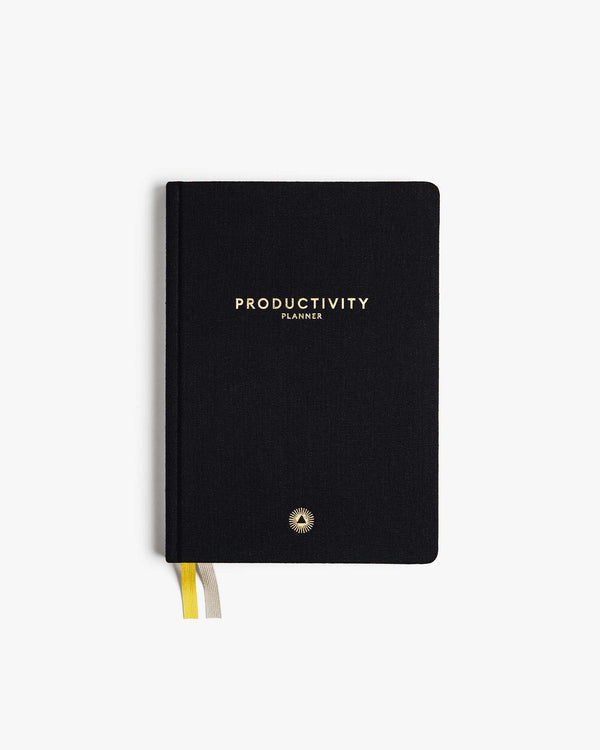How to Support Your Mental Health at Work

For most people, work makes up at least ⅓ of their lives. Being such a substantial part of our life, the work environment affects the formation of our identity and self-image, and how we see and experience other people and the world around us.
The work environment begins with our physical space, but it also involves people, atmosphere, behaviour, communication, fulfilment and satisfaction, and the whole context of the individual at work. How you feel at work can be of crucial importance. Jobs provide us with our livelihood, but also that’s where we invest our work, emotions, creativity, aspirations, and goals.
When you take all this into account, it matters quite a lot what the atmosphere is like in the environment in which you work, what the interpersonal relationships are like, how you react to them, and how they affect your mental health.
Mental well-being and the workplace
According to the definition by the World Health Organization (WHO), mental health is a state of well-being in which each of us is in a position to realize our potential, cope with the daily stress of life, work productively, and contribute to our community. Each year, every fifth adult in the US experiences mental health issues, and only 1 out of 3 manages to get the help they need.
The bottom line is: when a person is suffering from mental health problems, it affects their work. They get less done or simply don’t come to work. According to WHO, anxiety, and depression cost the global economy up to $1 trillion. On the other hand, for every $1 spent on treating mental health, there is a $4 return in terms of employees’ improved health and productivity.
Focusing on mental health at the workplace has immense benefits for both the employee and the employer. That’s why we’d like to share several tips with you on how to support your mental health at work.
Personalized workspace
Research has shown that flexibility over personalizing one’s workspace can result in higher levels of happiness and productivity among the employees. The ability to personalize their space gives people a feeling of ownership and identity when they come to work.
If you’re in the position of the employer and so far your policy on employees’ personalizing the workspace has been strict, consider loosening it up for the sake of your employees’ job satisfaction, happiness, identification with their company and colleagues, and overall productivity.
If you’re an employee, we strongly encourage you to create an atmosphere of gratitude and power in your space, and add personal items that bring you joy to your workstation. A photo that makes you smile, your favorite mug, journal, inspiring poster, candle, fresh cut flowers, decorations–whatever makes you feel like you.
Also, healthy workspaces that are full of greenery, natural light, soft yellow bulbs, and ergonomic furniture tend to nurture much healthier and more satisfied employees.
Healthy pre- and post-work routines
Routines are one of the pillars of our mental health. They give us extra control and discipline. They bring wellness, harmony and structure into our everyday life. They keep us organized.
One of the most powerful and rewarding routines is gratitude practice. Practicing gratitude at work makes us happier, more connected to others, and enhances the sense of belonging and respect at work. Here is a list of tips and activities that can help you implement gratitude at the workplace. We’ve also prepared an article on how you can cultivate gratitude within the team.
If you want to improve your emotional sanity and feel more satisfied at work, start with productive morning and relaxing evening routines, and create your own routines and small rituals that help you stay energized, focused and motivated at work.
Health-centered routines usually involve:
- A workout, stretching or any other type of physical activity, including a walk in nature;
- Healthy, nurturing food and drinks;
- A happiness-oriented activity (gratitude journaling, reading, quality time with kids, and so on);
- Mindfulness rituals like meditation, breathing exercise, and self-awareness.
Raising awareness about mental health
Whether you’re an employee or an employer, if you are interested in improving your colleagues’ mental well-being at work, you can suggest activities for raising awareness of the importance of mental health and sharing powerful and useful tips for coping with stress. Whether it’s lectures, workshops, discussions, or publications with all the relevant information–that’s your decision.
By speaking candidly about mental health, you help fight the stigma and the taboo around mental illness.
Creating connectionsIf your work requires going to the office, make sure to enjoy the benefits of being surrounded by people and nurture relationships with your colleagues (if you feel like there is an opportunity to strengthen your bond). They can be your support group and lend a helping hand when you truly need it, and vice versa.
For remote workers this could be slightly more difficult, as connecting with their colleagues often means talking through different means of online communication. Anyway, consider talking to them more often over video chat and meet in person from time to time to bring this special face-to-face energy to your relationship.
Don’t forget that your out-of-work friends and family can also be amazing supporters of your general mental health and work-related stress. Talk through your negative emotions
Goals and intentions
In order to preserve healthy motivation at work, it’s important that we have purpose and clear, achievable goals. Whether your goal is to land a promotion within two years or to learn a new skill related to your role, it’s important that you know why you are working and where you want to end up within a certain period of time.
Of course, even if we have a clear vision, goals and strategy to achieve them, challenges, roadblocks and unplanned events can get us off track, and then it becomes difficult to become motivated again. That’s why besides goals, you need to have an even broader idea of who you want to be, what you want to achieve, and how. That’s what we call intentions. Working on goals and intentions requires time and patience, so make sure to free up some time in your schedule to seriously think them through. Read more about intentions in this article on our blog.
Focus on strengths
Do you believe that we live in an ever-changing world, in which all of our skills, competence, and knowledge can be questioned, upgraded, and improved, or do you feel like things are always the same and there is hardly an opportunity for growth?
If you’ve answered the former, we’re glad to hear that you possess a growth mindset. A growth mindset is an excellent source of mental well-being, particularly at work. Being okay with constant change, taking the path less travelled, and finding different ways to expand your knowledge and experience is crucial for remaining resilient and emotionally stable. People with a growth mindset view failures, obstacles, and challenges as opportunities to unleash their full potential.
Both growth and fixed mindset actually work like self-fulfilling prophecies. What you believe in is what you get, as your cognition is what gears your behavior and choices. Those with a growth mindset tend to focus on their strengths more and they are more confident and satisfied in life. Those with a fixed mindset often make excuses, sabotage their happiness and stop themselves from making progress (or trying something new), as they simply don’t believe they’re capable of doing this.
Your ability to maintain mental well-being at the workplace largely depends on the decision-makers and those who manage the business. And while they are the main carriers of the overall atmosphere at the workplace, there is still a lot you can do to take care of yourself, improve your well-being, and boost your happiness.
A balanced lifestyle is the primary pillar of not only physical but mental health, too. From that point on, the possibilities are endless–all you need is to prioritize your well-being and make time to take care of yourself.











